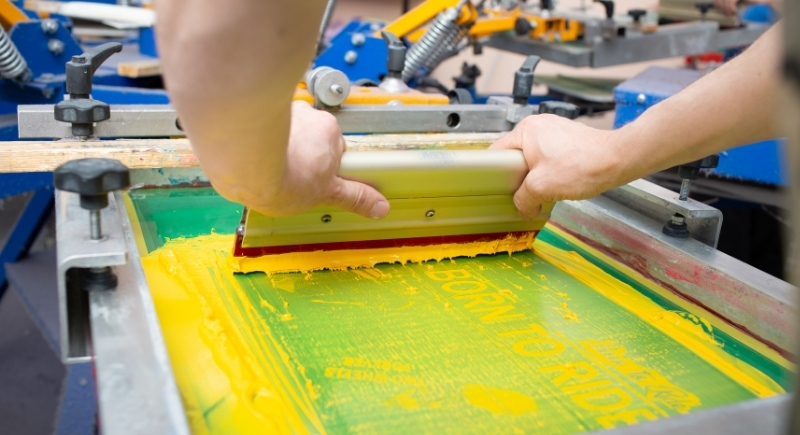The Next Big Skills That Technology Is About to Make Irrelevant
Skills don’t vanish in a single day, but the demand for them slowly dries up. As automation, AI, and new habits take hold, certain abilities that once seemed essential are slipping into the background. If your work still leans on one of these 15 fading skills, it’s worth asking how long they’ll hold real value.
Manual Data Entry

Credit: Getty Images
Typing numbers into spreadsheets used to be a staple of office work. AI tools like Microsoft Copilot and Zapier now handle it with fewer mistakes and without wrist strain. A 2024 LinkedIn report flagged data entry as one of the fastest-declining skills, and companies are moving toward systems that update themselves in real time.
Basic Customer Support Responses

Credit: Getty Images
Answering routine questions used to require an entire team. These days, Zendesk bots and Salesforce AI handle most of it before a human even sees the ticket. According to Gartner, 85% of customer interactions will be managed without a live agent by the end of 2025.
Typing Fast

Credit: Getty Images
You might have seen people bragging about WPM, but now autocorrect, predictive text, and voice-to-text make speed less essential for everyday tasks. Many young users rely on touchscreen keyboards, and in some cases, don’t type at all.
Developing Film

Credit: pexels
Digital photography took over long ago, but smartphones with AI-powered editing sealed the deal. Adobe Lightroom simulates vintage film looks with one tap. A few art schools still teach analog photography, but it’s mostly just for creative exploration.
Simple Website Coding

Credit: Canva
Creating a website no longer requires complex coding. Tools like Wix ADI, Webflow, and Framer use AI to build sites based on short descriptions. The focus has shifted to backend systems and design logic; the rest is pretty much automated.
Memorizing Phone Numbers

Credit: iStockphoto
Once a basic skill, it’s now all but unnecessary. Smartphones handle storage, backups, and instant access, so few people bother remembering even their parents’ numbers. That works fine most of the time, though it can cause trouble in emergencies.
Bookkeeping by Hand

Credit: Getty Images
Small businesses now rely on QuickBooks, FreshBooks, and similar tools that calculate and report automatically. The IRS accepts digital-only submissions, and many tax advisors use AI to flag discrepancies. Accountants are shifting toward advisory and strategy roles, because the number crunching part? Machines already handle it better.
T9 Texting

Credit: Getty Images
Before full keyboards and smartphones, pressing “2” three times for “C” made sense. Now? T9 is a relic. Most people under 25 have never used it. The last major phones that featured T9 were phased out over a decade ago, and autocorrect plus swipe texting made it irrelevant.
Reading Paper Maps

Credit: pexels
Navigation apps give instant turn-by-turn directions, traffic updates, and rerouting. While map-reading is still taught in some settings, it’s increasingly rare daily. Digital navigation has replaced not just the map, but the skill of orienting yourself without it.
Screen Printing by Hand

Credit: Canva
Creating shirts by exposing designs in darkrooms is a hands-on skill that’s becoming a niche. Print-on-demand services like Printful and Teespring let anyone upload artwork and ship it worldwide. While custom hand-printing still has artistic value, the demand has shifted to scalable, fast production.
Basic Graphic Design

Credit: Getty Images
Design once meant knowing software like Photoshop or Illustrator. However, Canva and AI-powered tools allow people to generate anything with drag-and-drop ease. Creative direction is still crucial, but the technical part is now button-click simple for the average user.
Sales Pitches In-Person

Credit: Getty Images
Shoppers today do their research before setting foot in a store. Think With Google says over 80% read reviews or watch product videos first. Sales reps still matter, but the power of persuasion has shifted online. AI-driven product selectors and FAQ bots often answer more questions than those behind the counter.
Cursive Writing

Credit: Getty Images
Schools across the U.S. have dropped cursive from the curriculum. Touchscreens and keyboards dominate written communication, and even signatures are often digital now. The National Education Association says cursive has essentially become optional, and for most people, it’s now a novelty, a skill used mainly to decode older birthday cards.
Operating a Manual Transmission

Credit: Canva
Stick shifts once gave better control and fuel efficiency, yet automatic transmissions have caught up in both areas, and now dominate sales. Fewer models offer manual options, and many drivers simply never learn. Valet drivers and even law enforcement report that fewer people are capable of driving a stick.
Using Encyclopedias

Credit: Canva
These heavy, gold-trimmed volumes were once the pride of many living rooms. Today, Wikipedia, AI chatbots, and real-time fact-checking have turned encyclopedias into historical décor. Britannica still exists, but nobody’s lugging volumes around for research anymore.